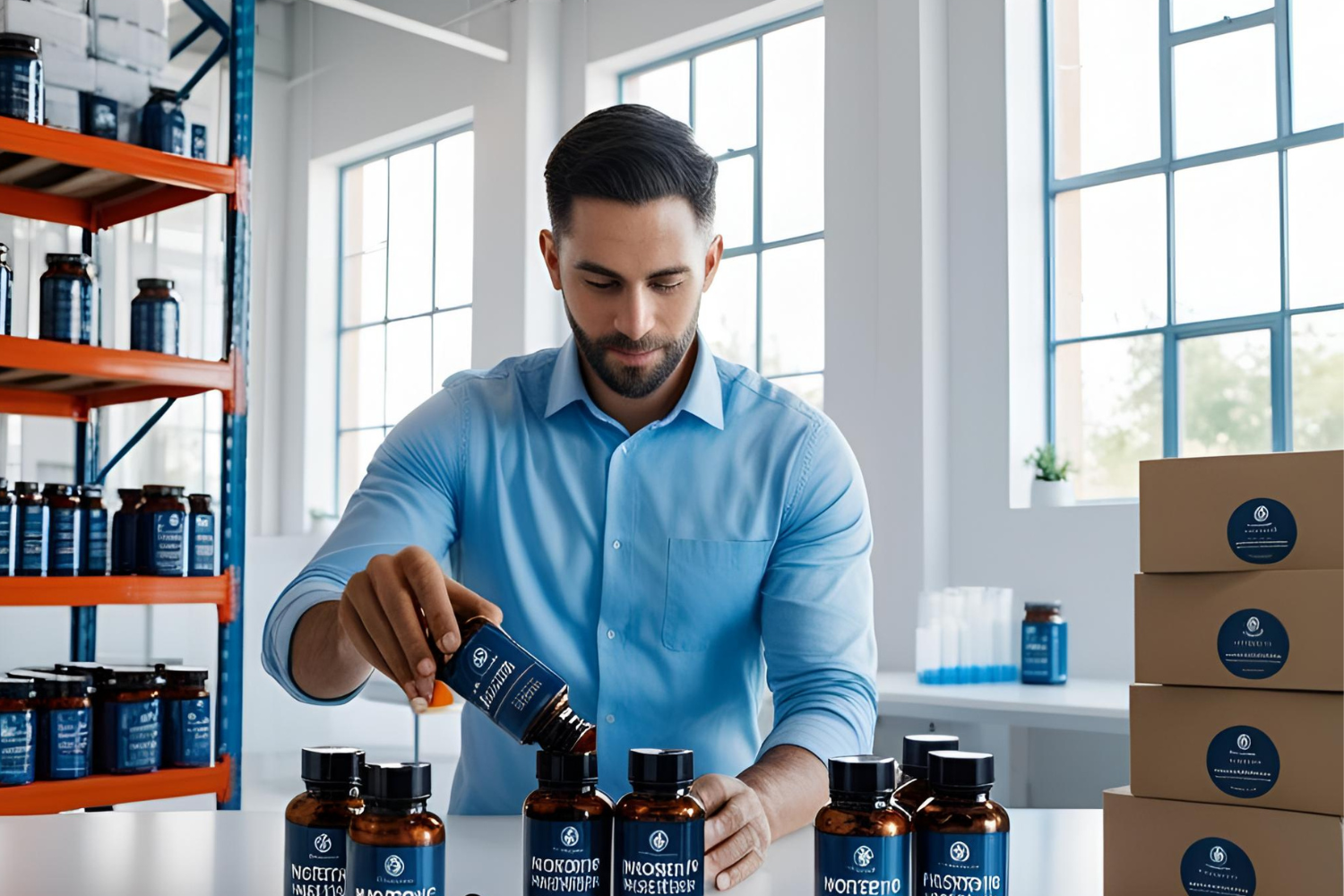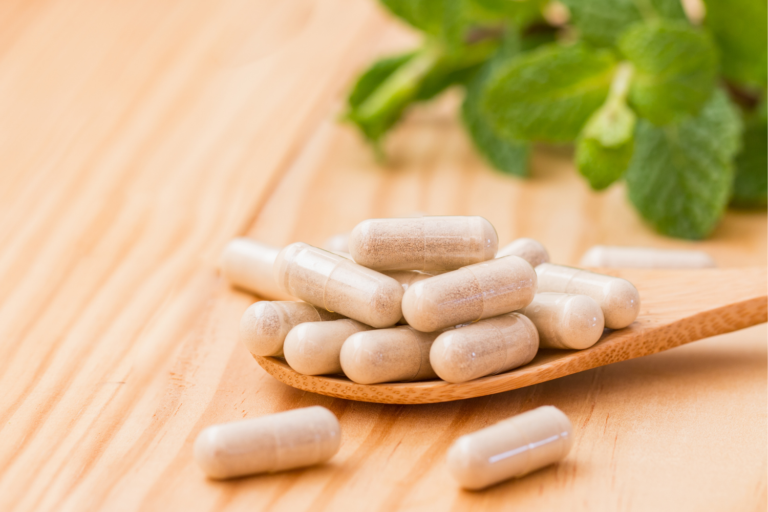Nootropic supplements are gaining popularity among consumers interested in brain health and mental performance support. Private label nootropics offer entrepreneurs a chance to enter this competitive market by creating custom formulations and branding their own high-quality products.
Launching a private label business can be a profitable opportunity with the growing demand for natural supplements like bacopa monnieri, ginkgo biloba, and alpha GPC. This guide covers the essential steps, from finding the right manufacturer and sourcing raw materials to product labeling and packaging design, ensuring a successful entry into the nootropics industry.
What Are Private Label Nootropics?
Private label nootropics are brain-boosting supplements that businesses can customize and sell under their own brand. Instead of manufacturing products from scratch, companies partner with a facility that produces high-quality nootropic supplements, allowing them to focus on branding, marketing, and sales.
Private labeling works by selecting an existing formula or creating custom formulations, then packaging and labeling the product with unique branding. This approach helps businesses enter the market quickly while maintaining control over their product line.
Benefits of Selling Private Label Nootropics:
- Lower production costs – No need to invest in manufacturing equipment or research.
- Brand control – Customize packaging design, product labeling, and marketing strategies.
- Growing market – Increasing consumer interest in natural health products for brain function and mental performance.
- Diverse product options – Offer specialized supplements with ingredients like caffeine, rhodiola rosea, and alpha GPC.
- Faster time to market – Work with the right manufacturer to launch white label products efficiently.
Why Start a Private Label Nootropics Business?
The nootropic supplements market is expanding as consumers prioritize cognitive function, memory, and stress and anxiety reduction. Market research indicates steady growth in the nootropics industry, driven by consumer interest in brain health and mental performance.
Professionals, students, and fitness enthusiasts seek effective nootropic products to enhance focus and mental performance, creating a strong opportunity for new brands. With private label options, businesses can enter this competitive market with high standards and custom formulations tailored to consumer preferences.
What Makes Nootropics a Great Business Opportunity?
The increasing awareness of brain health and cognitive abilities has fueled the popularity of nootropics. Consumers seek high-quality products that promote focus, mental clarity, and even energy levels. As demand grows, private label businesses can meet these needs with specialized supplements.
Expanding Customer Base:
- Students – Use nootropic supplements commonly associated with focus and cognitive support.
- Professionals – Enhance mental performance and energy for demanding workdays.
- Athletes – Support brain function, recovery, and endurance.
- Older adults – Seek supplements that are marketed for cognitive support and brain health.
- Health-conscious consumers – Seek natural supplements with adaptogenic properties like bacopa monnieri and ginkgo biloba.
How Do You Start a Private Label Nootropics Business?
Launching a private label nootropics brand involves research, finding the right supplier, and a process of creating a product line that meets consumer preferences. A structured process ensures a high-quality product that stands out in a competitive market.
Step 1: Research the Nootropics Market
Understanding the market helps identify the best nootropic supplements to offer. Researching consumer preferences, such as demand for brain boosters, stress reduction, and cognitive function focus enhancers, can guide product selection.
Analyzing trends in natural health products, including the most popular nootropics, like bacopa monnieri, ginkgo biloba, and alpha GPC, helps determine which formulations attract customers. Identifying the target audience—students, professionals, and athletes—ensures the right marketing strategy.
Step 2: Choose the Right Private Label Supplier
A reliable manufacturer ensures product quality and regulatory compliance. Look for suppliers with certifications, such as GMP (Good Manufacturing Practices) and third-party testing for heavy metals and purity.
Asking the right questions is essential before partnering. Inquire about raw materials, production capabilities, customization options, and minimum order quantities.
Examples of Well-Known Private Label Nootropic Manufacturers:
- Manufacturers with GMP-certified facilities
- Suppliers offering custom formulations and white label products
- Companies specializing in adaptogenic properties and brain health supplements
Step 3: Decide on Your Product Line
Selecting the right products ensures a strong market presence. Capsules, powders, and custom blends are popular options. Including ingredients like rhodiola rosea, caffeine, and well-known nootropic supplements can attract consumers.
Tips for Creating a Unique Formula:
- Combine well-researched ingredients that support brain function and mental performance.
- Offer natural supplements with high standards of quality control.
- Differentiate from other brands by focusing on specialized supplements for energy, focus, or memory.
Step 4: Develop Your Brand
Product packaging design should look professional, clean, and compliant with industry standards. High-quality packaging helps establish trust and attracts customers.
A strong brand identity includes a clear message that highlights the benefits of effective nootropic products and supplements. Branding should appeal to the target audience while maintaining a professional and trustworthy image.
Step 5: Ensure Legal and Compliance Requirements
Labeling regulations ensure transparency and consumer safety. Supplement packaging must include ingredient lists, dosage instructions, and necessary warnings.
Claims about cognitive function, memory, or brain health must follow FDA guidelines. Avoid unproven health claims and focus on the well-documented benefits of natural ingredients.
Step 6: Build Your Marketing Strategy
A strong marketing plan helps private label nootropics reach the right audience. Digital marketing, influencer partnerships, and paid advertising are key to driving sales.
How to Market Private Label Nootropics Effectively:
- Social media and influencer partnerships – Collaborate with health and wellness influencers to promote products.
- Content marketing – Create blog posts, YouTube videos, and email campaigns to educate consumers.
- Paid ads – Use Google and Facebook ads to reach potential customers and increase brand awareness.

How Much Does It Cost to Start a Private Label Nootropics Business?
Startup costs vary based on product selection, supplier agreements, and marketing efforts. The investment required depends on factors like minimum order quantities, packaging, and advertising.
Breakdown of Potential Startup Costs:
- Product development – Custom formulations, research, and testing.
- Supplier minimum order quantities (MOQs) – Bulk purchasing requirements for stock.
- Packaging and labeling – Design, printing, and compliance costs.
- Marketing and website costs – Branding, website creation, and online advertising.
Tips for Keeping Costs Low Without Sacrificing Quality:
- Start with white label nootropics to minimize custom formulation expenses.
- Work with a manufacturer offering low MOQs to reduce upfront costs.
- Use cost-effective packaging solutions that still maintain a professional look.
- Focus on digital marketing instead of expensive traditional advertising.
Where Can You Sell Private Label Nootropics?
Selling private label nootropics requires choosing the right distribution channels to reach your target customers. Online platforms, retail partnerships, and wholesale distribution models offer multiple ways to grow your brand.
Online Platforms: Your Website, Amazon, Shopify
E-commerce platforms provide direct access to consumers looking for high-quality nootropic supplements. Selling on your own website ensures full control over branding, pricing, and customer experience. Platforms like Amazon and Shopify allow businesses to scale quickly with built-in traffic and marketing tools.
Retail Stores and Gym Partnerships
Partnering with health stores, supplement retailers, and gyms helps expand your customer base. Some fitness professionals and wellness businesses incorporate nootropic supplements into their product offerings, making physical retail partnerships a strong sales channel.
Building a Wholesale Distribution Model
Wholesale distribution allows businesses to sell private label nootropics in bulk to retailers, health clinics, and wellness centers. Establishing relationships with distributors and wholesalers can increase brand visibility and long-term growth.

Common Challenges When Starting a Private Label Nootropics Business
Entering the nootropics market comes with challenges, from maintaining quality control to standing out in a competitive industry. Understanding these common concerns and obstacles helps businesses prepare and find solutions.
Quality Control and Ensuring Consistent Product Results
Partnering with a manufacturer that follows strict quality control procedures, such as third-party testing for heavy metals and ingredient purity, helps maintain product consistency and safety.
Navigating the Competitive Supplement Market
Many brands compete in the popular nootropics’ space, making it important to offer unique formulations and strong branding. Focusing on custom formulations with effective ingredients like alpha GPC, caffeine, and bacopa monnieri can help differentiate products.
Overcoming Regulatory and Compliance Hurdles
Nootropic supplements must follow FDA labeling and safety regulations to ensure compliance with industry standards. Working with a manufacturer experienced in compliance ensures that product claims and packaging meet industry standards.

Start Your Private Label Nootropics Business Today
The demand for cognitive-enhancing supplements presents a strong opportunity for entrepreneurs. Private label nootropics allow businesses to enter the market with custom formulations, brand control, and access to growing consumer interest in brain health.
Finding a reliable supplier, developing a solid brand strategy, and ensuring compliance are key steps to success. Start by researching suppliers and different brands, choosing the right product line, and building a marketing plan to launch a profitable nootropics business.
Frequently Asked Questions
What Are the Best Nootropics to Sell Under a Private Label?
Popular ingredients include L-Theanine, Bacopa Monnieri, Rhodiola Rosea, Alpha GPC, and Ginkgo Biloba, which are commonly used in cognitive support supplements.
How Long Does It Take to Launch a Private Label Nootropics Brand?
Timelines vary, but most businesses take 3-6 months to complete research, find a supplier, develop branding, and start selling.
Can I Start a Private Label Nootropics Business on a Small Budget?
Starting with white label products, low minimum order quantities, and digital marketing helps keep costs low while growing your brand.
Is Private Labeling Better Than White Labeling for Nootropics?
Private labeling allows full control over formulations and branding, for example, while white labeling offers ready-made products with minimal customization.
What Are the Legal Requirements for Selling Nootropic Supplements?
Nootropics must comply with FDA supplement labeling regulations and avoid unproven health benefits and claims to ensure legal and safe product marketing.
References
- Grand View Research. (2023). Nootropics Market Size, Share And Trends Report, 2030. https://www.grandviewresearch.com/industry-analysis/nootropics-market
- U.S. Food & Drug Administration. (2025). Current Good Manufacturing Practice (CGMP) Regulations. https://www.fda.gov/drugs/pharmaceutical-quality-resources/current-good-manufacturing-practice-cgmp-regulations
- U.S. Food & Drug Administration. (1994). Dietary Supplement Health and Education Act of 1994. https://ods.od.nih.gov/About/DSHEA_Wording.aspx
- U.S. Food & Drug Administration. (2005). Dietary Supplement Labeling Guide. https://www.fda.gov/food/dietary-supplements-guidance-documents-regulatory-information/dietary-supplement-labeling-guide
- U.S. Food & Drug Administration. (2025). Testing Results for Arsenic, Lead, Cadmium and Mercury. https://www.fda.gov/food/environmental-contaminants-food/testing-results-arsenic-lead-cadmium-and-mercury



